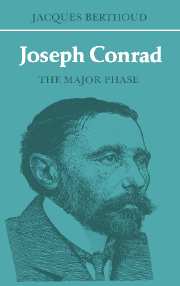Summary
I had no idea to consider Anarchism politically, or to treat it seriously in its philosophical aspects.
(from a letter of 12 September 1906 to John Galsworthy)Conrad himself acknowledges that The Secret Agent was conceived as a contrast to Nostromo. ‘One fell to musing before the phenomenon – even of the past’, he writes in the ‘Author's Note’ to the new novel:
of South America, a continent of crude sunshine and brutal revolutions, of the sea, the vast expanse of salt waters, the mirror of heaven's frowns and smiles, the reflector of the world's light. Then the vision of an enormous town presented itself, of a monstrous town more populous than some continents and in its man-made might as if indifferent to heaven's frowns and smiles; a cruel devourer of the world's light.
The Secret Agent, p, xiiAnd Conrad does not confine himself to stating this contrast in a preface; he actually builds it into the novel itself. Among his major characters, he includes one whose function is partly to highlight the differences between life at home and life abroad. The Assistant Commissioner who takes charge of the inquiry into the Greenwich explosion can be regarded as a diminished Charles Gould. Like Gould, he is a man whose ‘real abilities, which were mainly of an administrative order, were combined with an adventurous disposition’ (p. 113). But because of a socially advantageous marriage, he has been obliged to exchange the freedom and initiative of a police career in the colonies for a high departmental post in Scotland Yard.
- Type
- Chapter
- Information
- Joseph ConradThe Major Phase, pp. 131 - 159Publisher: Cambridge University PressPrint publication year: 1978



